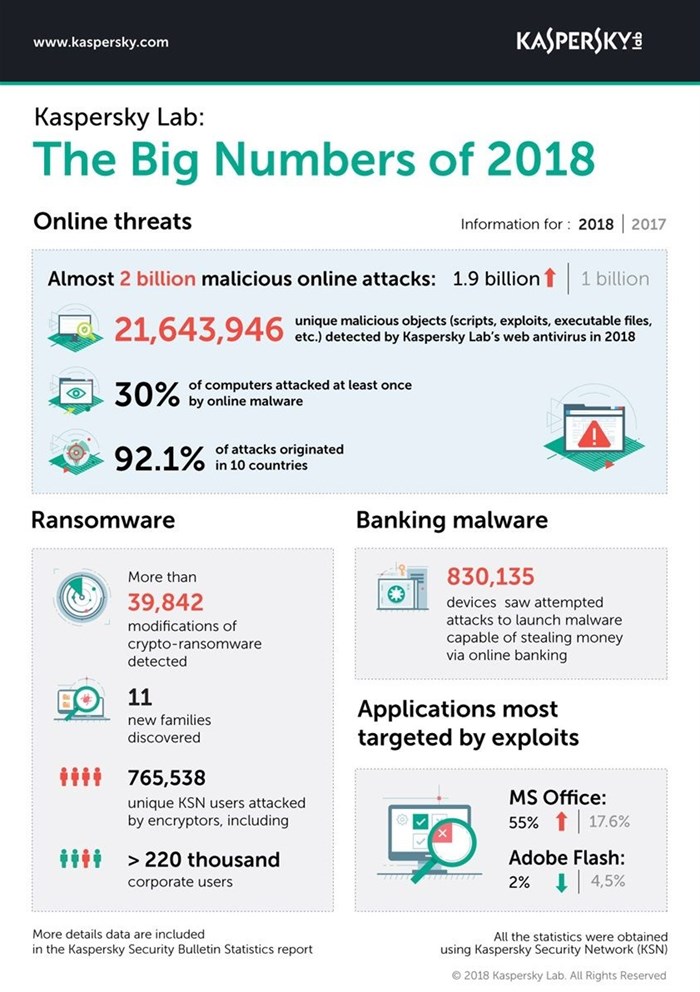
Related
Top stories


ESG & Sustainability#BudgetSpeech2026: SRD grant unchanged, other Sassa social grants see hike
13 hours



More news












ESG & Sustainability
South Africa’s carbon tax should stay: climate scientists explain why









Kaspersky Lab solutions repelled almost 2 billion attacks launched from online resources and detected more than 21 million unique malicious objects from around the world in 2018. Statistics show that, globally, 30% of user computers encountered an online malware attack at least once over the past year.

As for the Middle East, Turkey and Africa (META) region, Kaspersky Lab registered an 11% increase in malware infections, reaching an average of 1.5 million attacks per day, and 575 million in one year. Experts witnessed an increase of 78% in phishing attacks targeting the region, totalling to 20 million attacks in 2018. Ransomware attacks were also quite common the region, reaching 1.2 million attacks – a 128% increase from the previous year.
“Cities around the META region are becoming smarter are being pioneers in adopting the latest technologies for the betterment of their citizens. Companies are also digitally transforming to offer more serves online. This transformation undoubtedly brings convenience to us, however, with more and more devices being connected to the internet we become more likely to face a cyberthreat online. We urge consumers to pay more attention to cybersecurity because sometimes they can be the weakest link,” said Fabio Assolini, senior security researcher at Kaspersky Lab.

Overall globally, Kaspersky Lab’s detection technologies handled 346,000 new malicious files every day in the first ten months of the year. The number and range of new malicious files detected on a daily basis is a good indicator of the interests of cybercriminals involved in the creation and distribution of malware. In 2011, our technologies detected 70,000 new files a day, and by 2017, the number had risen five-fold to 360,000.
In order to stay protected, Kaspersky Lab recommends the following: